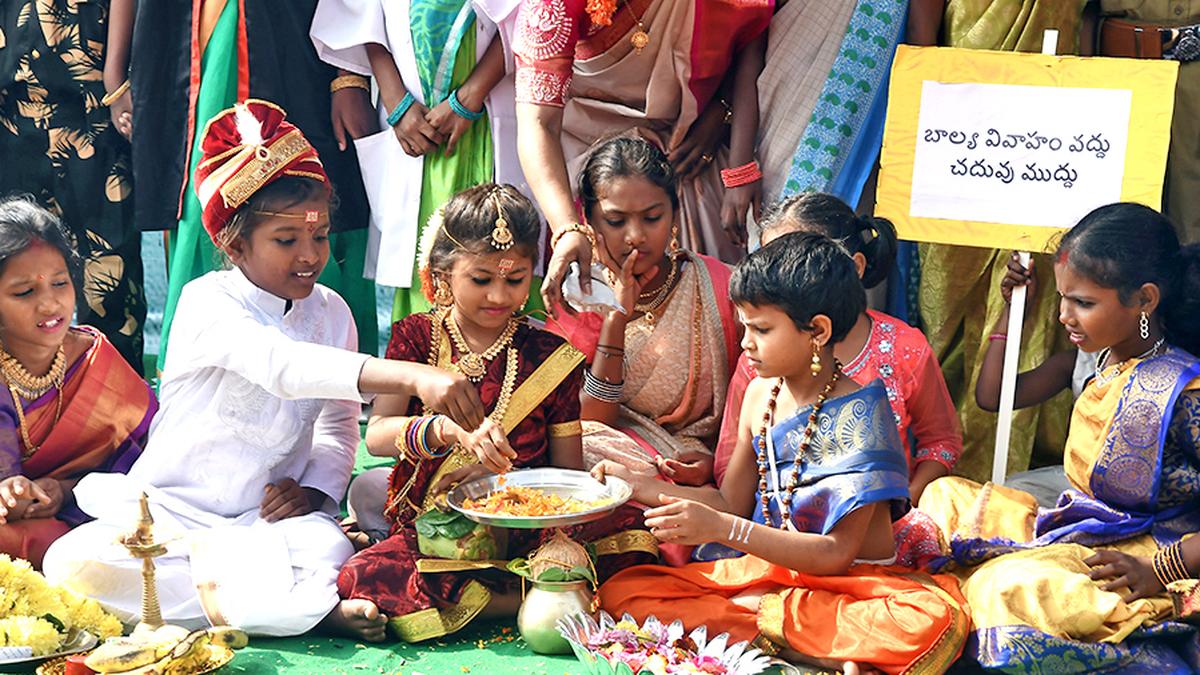
Supreme Court’s new guidelines aim to eliminate child marriages in Rajasthan by 2030
The Hindu
Supreme Court guidelines aim to eliminate child marriages in Rajasthan by 2030, holding local authorities accountable.
The Supreme Court’s recent guidelines for complete elimination of child marriages with an emphasis on holding local panchayat, school authorities and child protection officer accountable has come as a shot in the arm for civil society groups working for the cause in Rajasthan. According to the National Family Health Survey-5, 25.4% women aged between 20 and 24 years in the State were married before the age of 18 years.
Empowered by the new guidelines, the Just Rights for Children Alliance (JRCA) has said child marriages in the State could be eliminated by 2030 with collective efforts and has taken a pledge to intensify its work on the ground. The civil society group has been working with village authorities spreading awareness among the masses to put an end to child marriages.
The partners of the Alliance, supporting the Child Marriage Free India campaign, were petitioners in the case that resulted in the top court’s guidelines. In its October 18 verdict, the Supreme Court ruled that the Prohibition of Child Marriage Act, 2006, cannot be restricted by personal laws and that marriages involving children violate the free will to choose a life partner.
Child Marriage Free India convenor Rajeev Bharadwaj said here that ending child marriages, which are entwined in society for centuries, needed a “multipronged approach” which would be strengthened by the Supreme Court’s judgment. “We will extend our complete support to the State government to ensure that no child in Rajasthan is forced into marriage and every child is educated and protected,” Mr. Bharadwaj said.
Manish Sharma of the Association for Voluntary Action said that elimination of child marriages required a united effort from all stakeholders, including the village panchayats and police officials. He said civil society groups would collectively ensure elimination of child marriages even before 2030.
The guidelines issued in the Supreme Court’s judgment have focused on empowering children about their rights and making village panchayats, school authorities and child protection officers accountable for any child marriage solemnised in their vicinity. The top court also ruled that a “prevention, protection and prosecution” model should be adopted in enforcing the 2006 Act.
Besides, the Rajasthan High Court had in May this year observed in a judgment that a duty was cast on the village sarpanch under the Rajasthan Panchayati Raj Rules, 1996, to restrain child marriages. The court had directed the State government to sensitise and inform sarpanches and panches that they would be held responsible if they failed to prevent child marriages in their villages.











